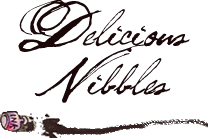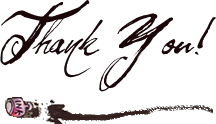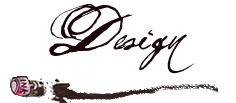 My 21st interview is with Mary from Minnesota. She is 46 years old, married with 3 children. She works outside the home. She has a blog called Minnesota Matron.
My 21st interview is with Mary from Minnesota. She is 46 years old, married with 3 children. She works outside the home. She has a blog called Minnesota Matron.
What does the word feminist mean to you? Has the meaning changed over time? A feminist stands and strives for gender equity. This meaning has changed for me. Initially, I would’ve argued that feminism is about gender equality. But a fabulous article by Katherine McKinnon (I think) changed my thinking in this regard. Life experience solidified that shift.
Do you consider yourself a feminist? Yes! I have a PhD in English with a minor in Feminist Studies from what was then the Center for Advanced Feminist Studies at the University of Minnesota. So not only do I consider myself a feminist, I am credentialed.
Would others consider you a feminist? Oh yes.
If you are a feminist, do you feel comfortable owning that title in your everyday life? Absolutely.
What are some images that come to mind when you think of the women’s movement? The image that just popped into my head was a big mob of women with signs in front of the White House. The second image is an African-American girl who grew up to be Secretary of State – or CEO or CFO or accomplished attorney.
What was the greatest gift of the women’s movement? The gender equity scales are much more balanced!
What was the greatest failure of the women’s movement? The women’s movement didn’t revolutionize the culture as much as it allowed women more equity in a male-dominated, defined world. Why couldn’t we have challenged assumptions that structure and fuel (quick and obvious examples) war, work and politics. For example, Hillary Clinton morphed and grooved to fit into a politician as closely related to that of her male counterparts rather than rejecting those standards and creating something new, like, maybe Cher? Imagine that!
Are you happy and/or fulfilled with your life? Why? Aristotle wrote, “If happiness is activity in accordance with excellence, if is reasonable that it should be in accordance with the highest excellence.” This type of happiness is echoed in our constitution: the ability to adequately respond to a calling or vocation makes life meaningful and therefore, makes one happy. I feel like I’m operating with excellence in much of my life – I’m doing my best as a parent, a teacher and a community member. However, I’m not happy or satisfied with my work as a writer. For better or worse, I’ll always feel that I haven’t arrived or that my life doesn’t hold the full value it should, unless I publish a book or become otherwise (wildly) successful. I’ve had writing success in many ways, but the book deal continues to elude me.
Did your mother work outside the home? Yes!
How did that affect you growing up? My mother was left with three children under the age of five when she and my father split. This was in 1967. She was a deeply conservative person, Catholic. Imagine being 26 years old during that culturally transformative time and instead of smoking pot, demonstrating or listening to music, you’re trying to figure out how to survive—with three small children and the conviction that the Pope knows best. Not all youth were groovy or part of the counterculture. She went back to school when I was 9, earned a teaching degree and worked full time after that. Indeed, she often had two jobs: teaching and an evening stint in a liquor store. This is how her days looked one summer: canning factory job, teaching, liquor store.
My mother and I had minimal interpersonal interaction. However, this probably had as much to do with her personality as it did with her work situation. Let me give an example of this.
When I was a young mother, I was diagnosed with two autoimmune disorders and required some help with my children. I called my mother to tell her about the diseases, their treatment and my current needs.
After I finished, she said this:
“I see a black squirrel in the back yard. If I leave peanut butter, they stay. But if I don’t they go away. Did you know that Marlene Sterling moved back to town?”
I grew up in a household in which I presented myself and said: “I am here. I need this.” And my mother replied: “Is there enough ketchup in the fridge?”
Now that I have boatloads of friends who are social workers, doctors, therapists and psychiatrists –who have all met my mother—I have a consensus that my mother has some kind of dissociative disorder. When I was first in therapy at 18, the psychologist told me that my mother suffered from some kind of ‘serious mental illness’ and wasn’t able to participate in family therapy. So it’s hard to sort out the economics, work, and ideology from the mental illness, which shaped so much more.
Back to work, my mother’s employment was never about success, fulfillment or desire. It was about need and the underlying message was that you could never, ever work enough and there was never enough money.
What impression did that leave with you about women working outside the home? Truly, I had no other model. I viewed friends’ mothers who stayed home as mini-miracles, anomalies in a world structured by crisis and worry.
Was your mother a homemaker? Uh, no. Let’s just say that in addition to working her many jobs, my mother did not feel that cleaning, cooking, or caring for her children were part of the daily menu.
How did that affect you growing up? I largely felt neglected and ignored – a stance I noticed and tried very hard to change for a long time.
Did your father respect your mother? Yes.
Did your mother respect your father? No. When he died, she thanked God “the bastard was dead.” In front of me, and I loved him.
Who were your earliest female role models other than your mother? Mrs. Davidson – my fourth grade teacher, who sat me down one day and told me I was smarter than the pack! She refused to accept my math aversion and told me that I needed to be better than the best because I had the gift of the “really fine brain.” Imagine being a fourth-grade girl and hearing this! I loved her! Other than that, I wanted to be Judy in Lost in Space.
Was getting married/partnered a conscious goal or focus early on in your adulthood? No – I was relationship averse.
Is there an event(s) that affected you in childhood/adolescence that impacted your identity in a positive or negative way? Honey, I wrote a book about this so there’s no single paragraph answer. Trust me, there were plenty in both directions but the negative had the larger sway.
Have you ever dieted? At one grim point, I weighed 76 lbs, which also explains the therapist at age 18.
Are you happy and/or comfortable with your weight? Now, yes.
Would you describe yourself as someone with “body issues?” If so, when do you remember this starting? What do you attribute it to? Okay, I wrote a novel based on my childhood and a dissertation on my eating disorder. The dissertation is called The Anorexic’s Story and it tells my story and the larger culture’s. It’s a fine piece of writing that I’ve toyed with trying to publish. In sum? I think the category ‘anorexia’ lets us off the hook. When we draw the general psychological/social attention to one group of women as ‘disordered’ that somehow implies that everyone else is ‘normal.’ Indeed, I think that the majority of women have a turbulent, or at least complex, relationship with their bodies –and therefore, with food.
How do you feel about the sexualizing of young women in our society? Horrific.
What do you wish your mother had told you about marriage, life, anything…that you didn’t hear from her? Oh my. Let me just share how my mother handled talking about sex and I think this will sum it up. When I was 9 or 10, my mother saw that I was reading Are You There God, It’s Me, Margaret. Her response was to hand me Gone with the Wind. She said: “Read this. It will tell you everything you need to know about sex.”
And that was that.
What role did your father play in your childhood? Even though I only actually saw him 4 or 5 times from age 5 to 18, his presence in my life was huge. Our family operated around various narratives of doom and his influence –genetically or theoretically – was all pervasive and formative. Evil Incarnate, in this form, was a danger we were constantly fighting, within ourselves and with the possibility that he might show up again.
What was your relationship like with your father? As an adult, I forged a loving and steadfast relationship with him. He turned out to be deeply flawed but also kind, giving and generous.
How do you feel about aging? I have yet to find my silver lining. I keep looking at my peers and thinking: “OMIGOD they look so OLD.” Really. I feel great and people tell me I look great. But I see aging as the march toward death. Remember the child who grew up waiting for the other boot to fall? For disaster? She’s the one facing aging and death.
How do you feel about plastic surgery? Neutral. I think a little eye tuck here or liposuction there isn’t a mortal offense. The plasticized, pulled faces are ridiculous.
Did your mother or another caretaker talk to you about sex and what to expect? Not once.
How was your first sexual experience? Perfect! I had a kind, loving and patient boyfriend. I was a freshman in college and he was a senior. I wasn’t ready for most of the entire academic year, but felt I was near the end. That young man exercised minimal, if any, pressure and sent me two dozen roses the day after the slow, thoughtful and sober occasion.
Is marriage liberating or inhibiting sexually? I’d say neutral. We have a very satisfying, if pedestrian, sex life: every few days, a little loving. Usually nothing new.
What makes you feel sexy? Feeling good about my body, feeling love toward my husband, feeling on top of my game, generally.
Do you have the energy/desire for sex at the end of the day? Not as often as I have sex. Some days are a gift for the guy.
What turns you on? A clean house that he cleaned!
What would make your sex life better? More mopped floors and folded laundry.
What do you love about being a working mom? Thinking! I get paid to read and write, to use my brain. I adore this part of my life. Remember that ‘are you happy’ question that started the interview? Working makes me happier—more fulfilled in the sense of vocation and intellect – than parenting.
What are the challenges of being a working mom? Keeping up with the cleaning, the extended family, the children – there are too many demands on me.
If you had a choice to be at home with your children, would you? It’s hard to say. I’m largely home with them now and getting a decent paycheck, so the trade off isn’t so clear.
Was the decision an economic one (e.g., your family requires two incomes)? Yes.
Do you beat yourself up for not spending enough time with your kids? No. I work largely from home so I’m with them plenty. The harder part is squeezing in the full-time tenure track job.
Do you feel supported by your partner? Oh yes!
Do you feel supported by other women? Yes.
Do you feel valued in your workplace? Yes.
Do you feel valued at home? Yes. If I wasn’t feeling pressed for time, I’d answer the stay at home mother questions too. In sum, having a job is more fulfilling for me but it’s harder. It’s easier to stay at home. Yes, the work is more tedious, but there is no question that life – on a day to day, task to task basis—is much harder for me now that I’m working full time. This is my first year back, full-time, and it’s entirely because of the economy. Oddly, I wish I had worked more earlier because I enjoy it so much, but the working mother life is still harder. There’s less of me to give, especially to myself.
Do you believe a happy, fulfilled mom is a better mom whether her choice is to work outside the home or to stay at home with her children? Yes!
Can women do it all? Kevin Bacon has two children, a band, and an acting career. Why can’t we all have families and professional success? Hilary Clinton seems pretty happy these days. It might take a superior person to ‘do it all,’ but I think it’s possible.
How old are your children? 12, 10 and 6
What do you want to do differently with your children than what you received from your parents? Listen, listen, listen. Oh my. My six year old is sitting on a chair waiting for me to notice him as I type. .. .the ironies abound!
What would you like to carry on that your parents established with you? A left-leaning political sensibility.
How has having children changed the relationship with your partner? It’s a lot more about leading the team than pleasing the lover. John and I frequently refer to ourselves as The Team.
Do you have dates with your partner? Yes!
Do you have personal “ME” time scheduled every week/every day? Well, I run four miles every morning and if anyone asks if I’m interested in a running partner, I pretty much start throwing punches. No! Alone!
How do you combat stress? See answer directly above. Toss in yoga, books, and wine.
Do you get out regularly with girlfriends? Yes. I love women.
Has it been challenging to retain a separate sense of self from your role as mother & wife? No. I’ve run political campaigns and headed large environmental movements before working full-time. I’ve always had a sense of myself as an agent, a presence in the world.
What do you do to facilitate that? Does your partner help make that happen? John thinks I’m amazing and tells me that nearly every single day! He has bigger dreams for me than I do.
Do you help create personal space for your partner? Yes!
Does your partner share in household tasks? Yes! As I type, he’s ending a 2.5 hour stint of cooking, eating and cleaning in the kitchen. Our cleaning division isn’t equal, but he does as much as he notices and then asks for lists. Can’t beat that. He also puts our youngest to bed every single night – for the past three years.
How did you think your life would be when you got married? How do you feel now? I think that because I can’t ever remember seeing a marriage from the inside as a child, I had no real vision of married life. So I had no expectations other than that relationship and world I created with John during the four years we lived together before getting married.
Do you see evidence of “The Mommy Wars” in your everyday life? Sort of. There’s no outright antagonism or hostility, but I will admit that I am sometimes jealous of my friends who don’t have to work. One friend in particular is constantly giving small gifts, remembering other people’s special occasions, hitting all the right notes. One working mama said about her: “SO and So is SO kind!” And I’m like – if I had that much time and money at my disposal, I’d be that kind too. So would we all. But I don’t begrudge her that life of greater ease, just wish I had some more wiggle room of my own. And I know that I’m probably letting her down now that I’m unavailable for the phone conversations and lunches that formerly sustained our friendship.
What did you dream of being when you were a child? A writer, reporter or attorney.
What do you yearn for? Readers – I write for readers, not myself, whether that’s in the two unsold novels (agent nearly did it, but then it all crumpled), the blog or other gigs. I adore adulation and response. Hmmmm. . . . let’s put on that Freudian cap, shall we? Remember that childhood in which I felt largely ignored and neglected? Of course I want someone to notice me! Sigh. Still chugging neurotic after all these years.
Thank you, Mary
******************************************
The Motherscribe Interviews are closed to comments. For more about Mary, please find her on Minnesota Matron.
| Tweet |
|
|||









